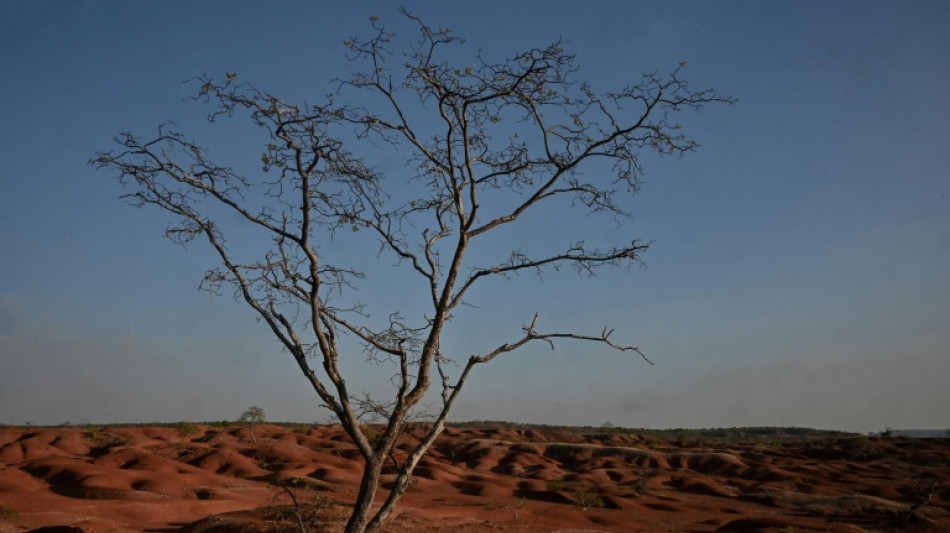
-
 Fans cheer for absent Ronaldo as Saudi row deepens
Fans cheer for absent Ronaldo as Saudi row deepens
-
Violence-ridden Haiti in limbo as transitional council wraps up
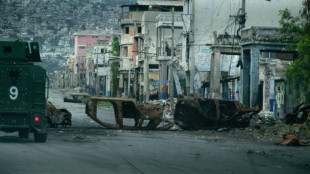
-
 Hundreds protest in Milan ahead of Winter Olympics
Hundreds protest in Milan ahead of Winter Olympics
-
Suspect in murder of Colombian footballer Escobar killed in Mexico

-
 Colombia's Rodriguez signs with MLS Minnesota United
Colombia's Rodriguez signs with MLS Minnesota United
-
Wainwright says England game still 'huge occasion' despite Welsh woes

-
 WADA shrugs off USA withholding dues
WADA shrugs off USA withholding dues
-
France detects Russia-linked Epstein smear attempt against Macron

-
 Winter Olympics to open with star-studded ceremony
Winter Olympics to open with star-studded ceremony
-
Trump posts, then deletes, racist clip of Obamas as monkeys

-
 Danone expands recall of infant formula batches in Europe
Danone expands recall of infant formula batches in Europe
-
Trump deletes racist video post of Obamas as monkeys

-
 Colombia's Rodriguez signs with MLS side Minnesota United
Colombia's Rodriguez signs with MLS side Minnesota United
-
UK police probing Mandelson after Epstein revelations search properties

-
 Russian drone hits Ukrainian animal shelter
Russian drone hits Ukrainian animal shelter
-
US says new nuclear deal should include China, accuses Beijing of secret tests

-
 French cycling hope Seixas dreaming of Tour de France debut
French cycling hope Seixas dreaming of Tour de France debut
-
France detects Russia-linked Epstein smear attempt against Macron: govt source

-
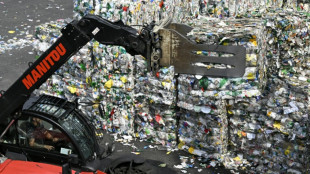 EU nations back chemical recycling for plastic bottles
EU nations back chemical recycling for plastic bottles
-
Terror at Friday prayers: witnesses describe blast rocking Islamabad mosque
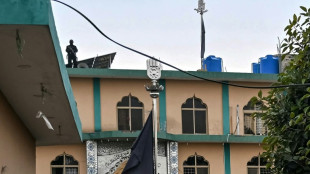
-
 Iran expects more US talks after 'positive atmosphere' in Oman
Iran expects more US talks after 'positive atmosphere' in Oman
-
US says 'key participant' in 2012 attack on Benghazi mission arrested
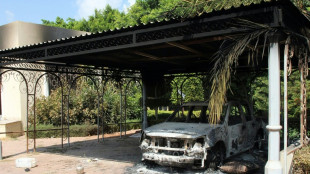
-
 Why bitcoin is losing its luster after stratospheric rise
Why bitcoin is losing its luster after stratospheric rise
-
Arteta apologises to Rosenior after disrespect row

-
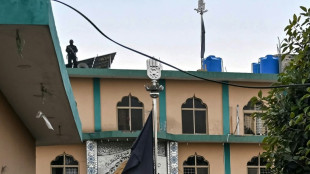 Terror at Friday prayers: witness describes 'extremely powerful' blast in Islamabad
Terror at Friday prayers: witness describes 'extremely powerful' blast in Islamabad
-
Winter Olympics men's downhill: Three things to watch
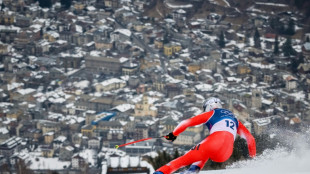
-
 Ice dancers Chock and Bates shine as US lead Japan in team event
Ice dancers Chock and Bates shine as US lead Japan in team event
-
Stellantis takes massive hit on 'overestimation' of EV demand

-
 Stocks rebound though tech stocks still suffer
Stocks rebound though tech stocks still suffer
-
Spanish PM urges caution as fresh rain heads for flood zone
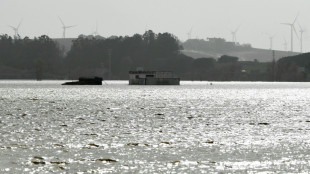
-
 Iran says to hold more talks with US despite Trump military threats
Iran says to hold more talks with US despite Trump military threats
-
Russia accuses Kyiv of gun attack on army general in Moscow

-
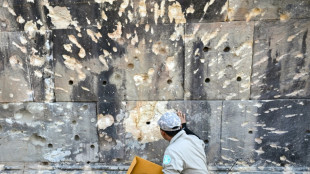 Cambodia reveals damage to UNESCO-listed temple after Thailand clashes
Cambodia reveals damage to UNESCO-listed temple after Thailand clashes
-
Norway crown princess 'deeply regrets' Epstein friendship

-
 Italy set for Winter Olympics opening ceremony as Vonn passes test
Italy set for Winter Olympics opening ceremony as Vonn passes test
-
England's Jacks says players back under-fire skipper Brook '100 percent'

-
 Carrick relishing Frank reunion as Man Utd host Spurs
Carrick relishing Frank reunion as Man Utd host Spurs
-
Farrell keeps the faith in Irish still being at rugby's top table

-
 Meloni, Vance hail 'shared values' amid pre-Olympic protests
Meloni, Vance hail 'shared values' amid pre-Olympic protests
-
Olympic freestyle champion Gremaud says passion for skiing carried her through dark times

-
 US urges new three-way nuclear deal with Russia and China
US urges new three-way nuclear deal with Russia and China
-
Indonesia landslide death toll rises to 74
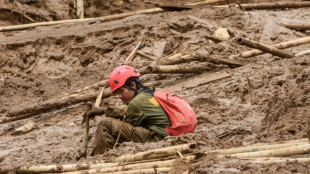
-
 Hemetsberger a 'happy psychopath' after final downhill training
Hemetsberger a 'happy psychopath' after final downhill training
-
Suicide blast at Islamabad mosque kills at least 31, wounds over 130

-
 Elton John accuses UK tabloids publisher of 'abhorrent' privacy breaches
Elton John accuses UK tabloids publisher of 'abhorrent' privacy breaches
-
Lindsey Vonn completes first downhill training run at Winter Olympics

-
 Digital euro delay could leave Europe vulnerable, ECB warns
Digital euro delay could leave Europe vulnerable, ECB warns
-
Feyi-Waboso out of England's Six Nations opener against Wales

-
 Newcastle manager Howe pleads for Woltemade patience
Newcastle manager Howe pleads for Woltemade patience
-
German exports to US plunge as tariffs exact heavy cost

| SCS | 0.12% | 16.14 | $ | |
| CMSD | 0.25% | 23.95 | $ | |
| RBGPF | 0.12% | 82.5 | $ | |
| CMSC | 0.02% | 23.555 | $ | |
| NGG | 1.34% | 88.07 | $ | |
| AZN | 3.32% | 193.58 | $ | |
| GSK | 1.77% | 60.235 | $ | |
| RYCEF | 1.54% | 16.88 | $ | |
| RELX | -2.61% | 29.325 | $ | |
| BCC | 2.67% | 91.605 | $ | |
| RIO | 2.46% | 93.415 | $ | |
| JRI | 0.58% | 12.955 | $ | |
| BTI | 1.35% | 62.81 | $ | |
| BCE | -1.63% | 25.16 | $ | |
| BP | 2.17% | 39.015 | $ | |
| VOD | 3.27% | 15.115 | $ |

In Brazil town turning to desert, farmers fight to hang on
Standing amid a terrain of rugged red craters that looks like something from Mars, Brazilian farmer Ubiratan Lemos Abade extends his arms, pointing to two possible futures for this land fast turning to desert.
Abade, a 65-year-old cattle rancher, lives in Brazil's worst desertification hotspot: Gilbues, in the northeastern state of Piaui, where a parched, canyon-pocked landscape is swallowing up farms and residences, claiming an area bigger than New York City.
Experts say the phenomenon is caused by rampant erosion of the region's naturally fragile soil, exacerbated by deforestation, reckless development and probably climate change.
But several hundred determined farming families are hanging on in this desolate land, scraping by with hardscrabble ingenuity and sounding the alarm over the spreading problem.
"Things have gone haywire. It's not raining the way it used to. So we use irrigation. Without that, we wouldn't get by," says Abade.
To his right, he points to a barren field of withered grass that died before his cattle could eat it. To his left, he points to an exuberant patch of tall bluestem grass watered with a makeshift irrigation system, which he is counting on to keep his 15 cows -- and himself -- alive.
He installed the system a year ago, digging a well and jerry-rigging a network of hoses.
"Without irrigation, this whole place would look like that -- dying of thirst," he says.
"It takes technology to farm here. But when you're poor, technology is hard to come by."
- 'Fragile land' -
Seen from the sky, the "Gilbues desert" looks like a giant sheet of crumpled, brick-red sandpaper.
Its erosion problem isn't new. The name "Gilbues" likely comes from an Indigenous word meaning "fragile land," says environmental historian Dalton Macambira, of the Federal University of Piaui.
But humans have made the problem worse by razing and burning vegetation whose roots helped secure the silty soil, and by over-taxing the environment as Gilbues has grown to a town of 11,000 people, he says.
Gilbues was the scene of a diamond-mining rush in the mid-20th century, a sugarcane boom in the 1980s and is now one of the biggest soybean-producing counties in the state.
"Where there are people, there's demand for natural resources," Macambira says.
"That accelerates the problem, by demanding more of the environment than it can sustain."
Macambira published a study in January finding the area affected by desertification more than doubled from 387 square kilometers in 1976 to 805 (310 square miles) in 2019, hitting 15 counties and some 500 farming families.
Climate scientists say further studies are needed to pinpoint whether global warming is accelerating the phenomenon.
Farmers say the dry season has gotten drier, punctuated by a shorter, more-intense rainy season -- which exacerbates the problem, as heavy rains wash away more soil, deepening the gaping canyons known as "vocorocas."
Macambira says a hotter planet can only make things worse.
"Wherever you have environmental degradation, climate change tends to have a more perverse effect," he says.
- Turnaround -
The United Nations calls desertification a "silent crisis" that affects 500 million people worldwide, fueling poverty and conflicts.
But there is opportunity in the problem, says Fabriciano Corado, president of conservation group SOS Gilbues.
The 58-year-old agricultural engineer says although Gilbues's soil erodes easily, it is also a farmer's dream: rich in phosphorous and clay, it needs no fertilizer or other treatments.
Like Abade, he says farmers need technology to survive the encroaching desert -- but nothing too high-tech.
Local producers are getting extremely positive results with things like protecting native vegetation, drip irrigation, fish farming and the ancient anti-erosion technique of terrace farming, he says.
"We don't have to reinvent the wheel. The Aztecs, Incas and Mayas did it already," he says.
He condemns the closure six years ago of a government-run anti-desertification research center in Gilbues that helped local farmers implement just such techniques.
The state plans to reopen it -- but has not set a date.
The region meanwhile has huge potential as a solar energy producer, says Corado, citing the recent opening of a 2.2-million-panel solar park. Another is in the works.
Get the right mix of conservation and technology, and "there's no stopping us," he says.
L.Hussein--SF-PST



